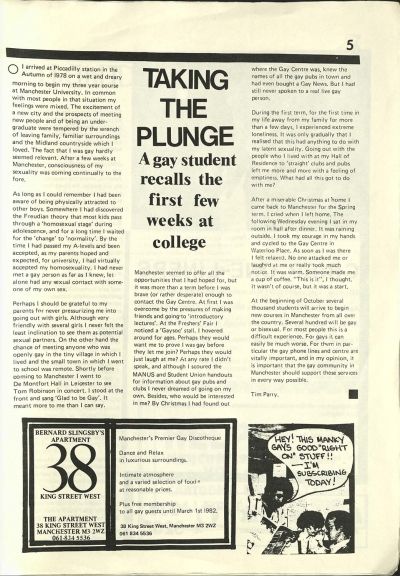
Bernard's Bar (Slingsby's)
Advert, 1981
"Manchester's Premier Gay Discotheque".
Free membership to all gay guests until March 1st 1982
Fascinating piece above by Tim Parry on his first weeks at college as a gay student. He mentions the importance of gay helplines - a vital service for many at this time.
Courtesy of Manchester Libraries, Information & Archives. You can make an appointment to see this collection by emailing: archiveslocalstudies@manchester.gov.uk
Uploaded as part of Manchester Pride’s OUT! heritage project.





















